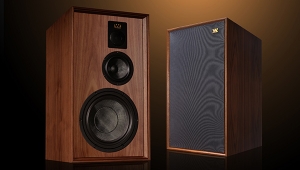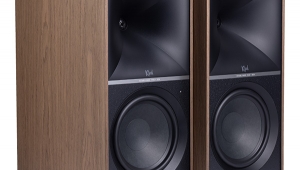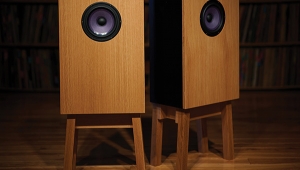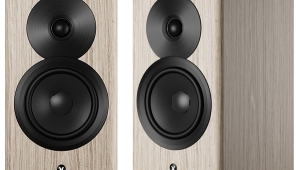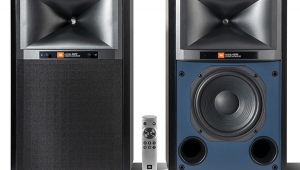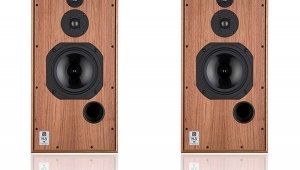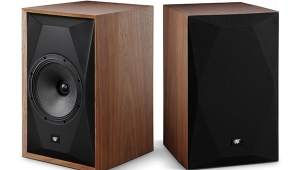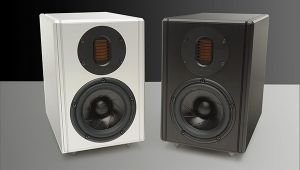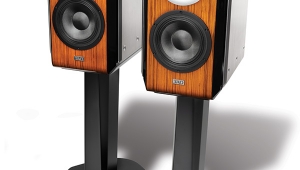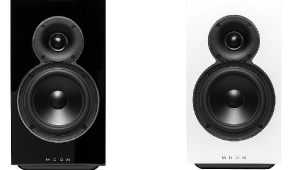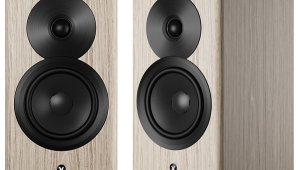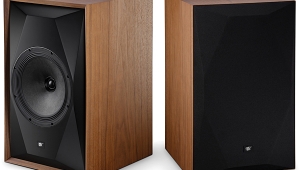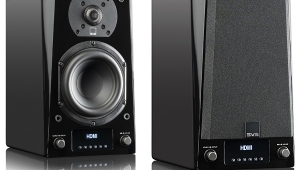| Columns Retired Columns & Blogs |
Spica TC-50 loudspeaker Page 2
I went to crank the woofers up (from the levels set using the voltmeter), and promptly ran out of steam! There was only about 3dB of additional output level available. It was barely enough. With the woofers up full, mid-bass was just about correctly balanced with the upper range, but the bass below that sounded as if it tapered off all the way down to the speaker's (confirmed) 25Hz lower limit. I could hear 25Hz quite well, but its level was so far below the upper range as to be of little subjective value when listening to music.
Footnote 1: I had not heard the subwoofer/TC-50 combo sound so bad in my home, but I had also not heard the TC-50s sound as bad in JGH's room on an earlier occasion. This apparent discrepancy in TC-50 behavior couldn't be explained by Spica, and attempts to obtain a second sample pair were fruitless.—Larry Archibald
Needless to say, I was even less happy with the sound using a single woofer module. The low-end balance was not quite barely sufficient.
My disappointment with the Spica TC-50/subwoofer combination may have had something to do with the listening room. It is possible that using the woofers far away from the corners of the room, as I had to do to get the rest of the system to perform well, contributed to the problem, though I don't understand why add-on subwoofers should require corner reinforcement. (LA claimed he had never heard them sound so bad, including in his own home, footnote 1.) My room has been satisfactory at the low end for just about every other system I've had here—the subwoofers provided with the Dayton Wright XG-10s being the sole exception. Given that I had the designer himself in my home to set up the system, I can only report what I heard.
I don't like to say this, because John Bau is a good friend, but I find the sound of this system a little hard to take. I have always preferred a warm, rich, even dull sound to a cold, brittle sound. I had hoped Spica's new subwoofers would ameliorate the coldness of the TC-50s, but all they do is carry that sparseness about two octaves lower, all the way to the bottom of the audible range. Their bottom range is truly awesome, but there just isn't enough of it. I would have preferred a low end that was flat down, perhaps, to 35Hz and then took a nosedive, to this one which extends much lower but sounds as if its output is diminishing all the way down.
John contends that "when you get the phase relationships right, the frequency response will be right." I'm not so sure about that. Obviously this system is doing phase-type things in exemplary fashion. Equally obviously, it is doing frequency-response-type things much less well. I do not value pristine clarity and superb imaging enough to accept this much of a tradeoff in musicality. You may feel differently—it is, of course, anyone's privilege to disagree with me.
Incidentally, our tests of Spica speakers during the last couple of years have left a trail of debris behind us. We have managed to wipe out four TC-50s (burned-out or frozen-up voice-coils) and one of the new subwoofer units (the servo function evidently gave out, allowing the woofer to flop all over the place)—and all of this at listening levels which have never fazed any other speakers we've used in recent years. This would seem to suggest either unusual fragility or a continuation of yet another Murphy attack that set in about a year ago (footnote 2). Seven other components, ranging from power amps to surround-sound processors, either died in use or were dead out of the shipping carton. So, we put this to our readers: what sort of experiences have you had with Spica speakers, in terms of durability and reliability?
Overall I think that John Bau has succeeded at what he set out to do, but I will come down in favor of some other speaker in the $1200-$1700 category for the reasons specified. I await John's entry in the $1000-$1200 market, where his design techniques and production efficiency could offer something really terrific.—J. Gordon Holt
Footnote 1: I had not heard the subwoofer/TC-50 combo sound so bad in my home, but I had also not heard the TC-50s sound as bad in JGH's room on an earlier occasion. This apparent discrepancy in TC-50 behavior couldn't be explained by Spica, and attempts to obtain a second sample pair were fruitless.—Larry Archibald
Footnote 2: While we have always scoffed at The Absolute Sound's preoccupation with astrology, we were interested to learn that TAS has also had a rash of equipment failures during the same period we have been experiencing our own. This sort of thing could make believers out of us, too.—J. Gordon Holt
- Log in or register to post comments
